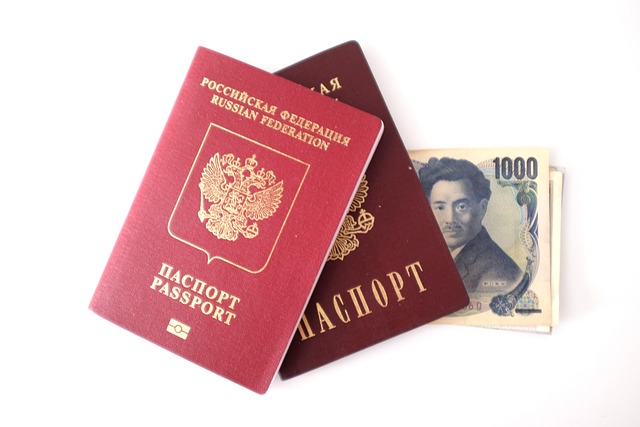Can You Lose Italian Citizenship? Key Reasons

Italian citizenship is generally considered stable and enduring, but there are specific circumstances under which an individual can lose their Italian nationality. Understanding these scenarios is crucial for anyone holding or seeking Italian citizenship, whether by birth, descent (jure sanguinis ), marriage, or naturalization. Below, we’ll explore the key reasons someone might lose Italian citizenship and provide clarity on how to avoid involuntary loss.
1. Voluntary Renunciation
One of the most straightforward ways to lose Italian citizenship is by voluntarily renouncing it. This process requires a formal declaration and is typically done at an Italian consulate or embassy.
- Who Can Renounce?
- Adults (over 18 years old) who hold dual or multiple citizenships.
- Individuals residing outside Italy who wish to relinquish their Italian nationality.
- Why Would Someone Renounce?
- To comply with the laws of another country that does not allow dual citizenship.
- Personal preference or convenience in certain legal or administrative situations.
- Important Note : If you only hold Italian citizenship, you cannot renounce it unless you acquire another nationality simultaneously. Italy does not permit statelessness.
2. Acquisition of Another Citizenship Before August 15, 1992
Before August 15, 1992, Italian law stipulated that acquiring another citizenship automatically resulted in the loss of Italian nationality. This was due to the principle of “exclusive allegiance” that governed citizenship at the time.
- Key Points :
- If you became a citizen of another country before this date, you likely lost your Italian citizenship unless you formally reacquired it later.
- After August 15, 1992, Italy amended its laws to allow dual or multiple citizenships, so acquiring another nationality no longer results in automatic loss.
- What Can You Do?
- If you believe you lost Italian citizenship under this rule, you may be able to reclaim it through a simplified procedure, provided you meet certain conditions.
3. Serving in a Foreign Military Against Italy
Serving in the armed forces of another country against Italy can lead to the loss of Italian citizenship. This provision is rooted in the concept of loyalty to the nation.
- Key Points :
- The individual must voluntarily join a foreign military force engaged in hostilities with Italy.
- Simply serving in a foreign military (e.g., as part of an alliance or peacekeeping mission) does not result in loss unless it violates Italian interests.
- Modern Context :
- This scenario is rare today, given Italy’s alliances within NATO and the European Union. However, it remains a theoretical possibility in cases of direct conflict.
4. Holding Public Office in a Foreign Country
Accepting certain high-ranking public offices in another country could result in the loss of Italian citizenship, depending on the nature of the position and its implications for allegiance.
- Examples :
- Becoming the head of state or government of another country.
- Taking on roles that require renouncing other nationalities or pledging exclusive loyalty to the foreign nation.
- Exceptions :
- Many diplomatic or honorary positions do not trigger loss of citizenship.
- Dual citizens holding lower-level public offices in another country typically retain their Italian nationality.
5. Fraudulent Acquisition of Citizenship
If Italian citizenship was obtained through fraudulent means—such as falsifying documents or providing misleading information—the government has the authority to revoke it.
- Common Scenarios :
- Misrepresentation during the jure sanguinis application process.
- Falsifying residency requirements for naturalization.
- Consequences :
- Revocation applies retroactively, meaning the individual is treated as if they never held Italian citizenship.
- Legal penalties may also apply, including fines or bans on future applications.
6. Failure to Maintain Dual Citizenship Requirements
While Italy allows dual citizenship, some countries impose restrictions that indirectly affect Italian nationals.
- Example :
- Countries like Japan, China, and India do not recognize dual citizenship. If an Italian citizen naturalizes in one of these nations, they may be forced to choose between retaining their new nationality or keeping their Italian passport.
- Solution :
- Always check the citizenship laws of the second country to ensure compatibility with Italian regulations.
7. Special Cases: Minors and Dependents
Children and dependents are generally protected from losing Italian citizenship involuntarily. However, there are exceptions:
- Loss Through Parental Actions :
- Prior to August 15, 1992, children could lose Italian citizenship if their parents acquired another nationality and renounced Italian citizenship.
- After this date, children retain Italian citizenship even if their parents become citizens of another country.
- Adoption :
- If an Italian minor is adopted by foreign parents and acquires the adoptive parents’ nationality, special rules may apply to determine whether Italian citizenship is retained.
How to Avoid Losing Italian Citizenship
To safeguard your Italian nationality, consider the following tips:
- Stay Informed : Keep up-to-date with changes in Italian citizenship laws and international agreements.
- Avoid Conflicts of Interest : Refrain from actions that could be interpreted as disloyalty to Italy, such as joining hostile militaries or accepting incompatible public offices.
- Verify Documentation : Ensure all paperwork related to your citizenship application is accurate and truthful.
- Consult Authorities : If you’re unsure about your status, contact the nearest Italian consulate or embassy for clarification.
- Reacquire Citizenship if Lost : If you inadvertently lost Italian citizenship (e.g., prior to 1992), explore options for reinstatement, such as proving descent or meeting residency requirements.



